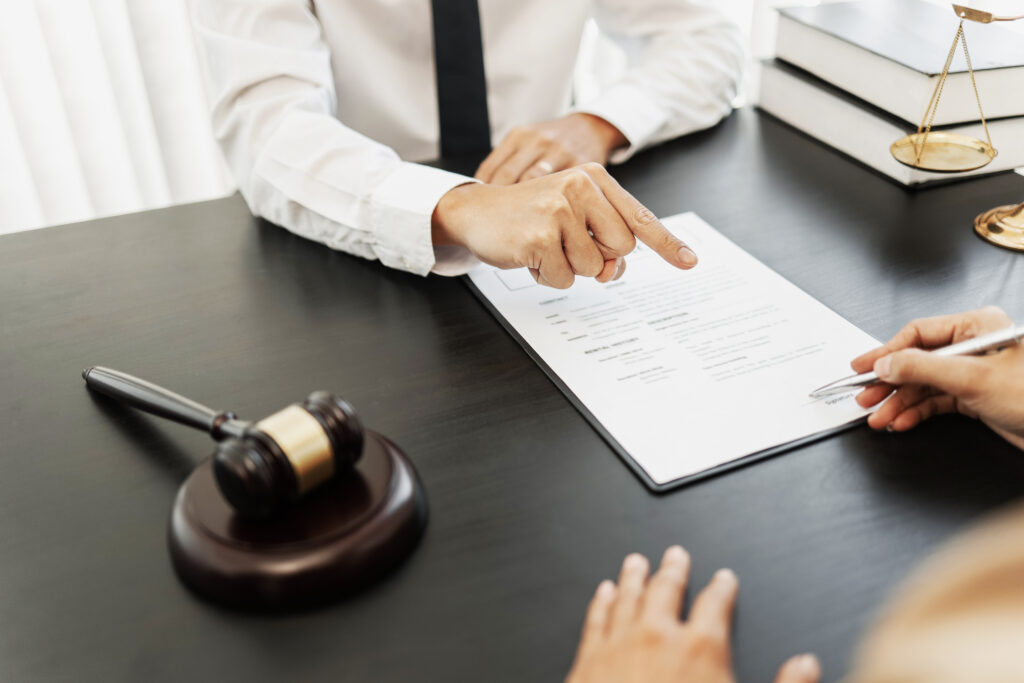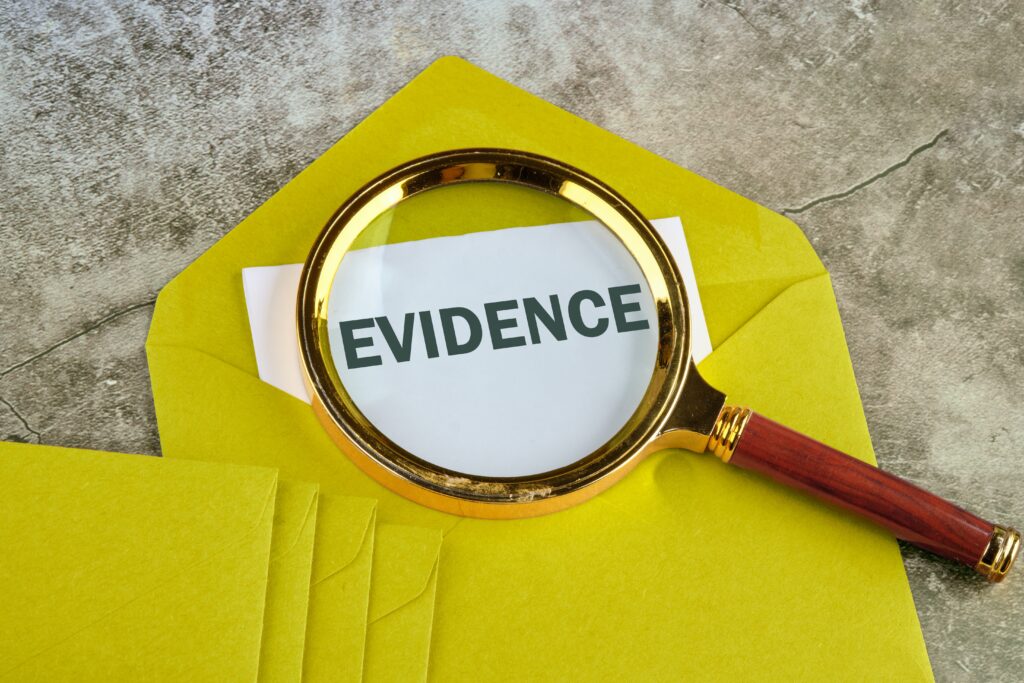The concept of wrongful death occupies a significant place in civil law. At its core, wrongful death is a legal claim that refers to a situation where an individual dies as a result of another party’s negligence or intentional actions. This legal action is designed to provide compensation to the surviving family members or dependents who suffer from the victim’s loss.
If you’ve lost a loved one and believe their death occurred at the hands of another, do not hesitate to seek legal guidance. A Ontario wrongful death attorney can thoroughly review the details of your case and provide invaluable advice and support as you seek justice for your losses.
Defining Wrongful Death
A wrongful death is one brought about by another party or entity’s wrongdoing. When a family loses a loved one under wrongful circumstances, they may have a viable wrongful death case.
Some of the most common examples of situations resulting in wrongful death include, but are not limited to:
- Car accidents
- Trucking collisions
- Motorcycle accidents
- Pedestrian accidents
- Boating collisions
- Slip and falls
- Construction accidents
- Workplace accidents
- Use of defective products
- Nursing home abuse or neglect
- Acts of violence, like murder
Wrongful death is a legal claim brought forth by the family members or financial dependents of a deceased individual who has died due to the negligence, recklessness, or intentional actions of another party. By filing a wrongful death claim, these individuals can seek justice from the at-fault party and compensation for their related expenses and losses.
Understanding Legal Grounds for Wrongful Death Claims

For a wrongful death claim to be successful, certain legal grounds must be established, depending on the situation’s specifics and state law. These typically include:
- Negligence: Negligence is the most common basis for wrongful death claims. When a party is negligent, it means they’ve failed to act with reasonable care, resulting in harm or death. For example, if a driver is distracted and causes a fatal accident, the victim’s family may file a wrongful death claim based on the driver’s negligence.
- Recklessness: Recklessness goes beyond mere negligence. It involves a conscious disregard for the safety of others. For instance, driving under the influence of alcohol or drugs and causing a fatal accident can be deemed reckless.
- Intentional acts: In cases where the death is caused by deliberate actions, such as assault or murder, a wrongful death claim can be pursued. Wrongful death claims vary from criminal cases.
- Strict liability: In some cases, a wrongful death claim may be based on strict liability. This legal principle holds parties responsible for certain activities or damages regardless of fault or negligence. For example, manufacturers can be held strictly liable for deaths resulting from defective products.
A wrongful death attorney can assess your case to determine what caused your loved one’s death and the legal grounds for the claim.
Civil vs. Criminal Liability
There is often some confusion concerning civil and criminal liability for a victim’s death. Depending on the circumstances, a party responsible for someone’s death can face both.
Wrongful death claims are civil cases. When filing a wrongful death case, surviving family members are seeking justice and monetary recovery for their loved one’s passing. The burden of proof is lower for civil cases, as you must prove the defendant caused the death “by a preponderance of the evidence.” This means it is more likely than not that the defendant’s actions eventually resulted in the victim’s death. If liable, the defendant must pay money damages.
On the other hand, the burden of proof is higher in a criminal case. To find a defendant guilty, the prosecution must prove the defendant caused the victim’s death “beyond a reasonable doubt,” meaning the evidence must be so convincing of the defendant’s guilt that a person would have no reasonable doubt to convict. If guilty, the defendant faces serious repercussions, including steep fines or prison time.
A defendant can face both civil and criminal liability if the cause of the victim’s death stems from criminal wrongdoing. A wrongful death attorney can further explain what both mean for your case.
Who Can File for Wrongful Death?

It’s important to note that not just anyone can file a wrongful death claim after someone’s passing. The eligibility to file a wrongful death claim varies by jurisdiction, but can include:
- Immediate family members: Typically mean the deceased’s spouses, children, or parents. Some jurisdictions also include domestic partners and other close relatives.
- Dependents: In certain situations, individuals financially dependent on the victim, such as grandchildren or siblings, may also be eligible to file a claim.
- Personal representatives: In some states, the personal representative or executor of the deceased’s estate must file the wrongful death claim on behalf of the beneficiaries.
It’s helpful to know who can file a wrongful death case in your state to avoid errors and setbacks. A wrongful death lawyer can explain how your state’s laws work and who may be qualified to file your case.
Types of Damages in Wrongful Death Cases
The damages awarded in wrongful death claims aim to compensate the surviving family members for their losses. These damages can be categorized into two main types: economic and non-economic.
Economic damages cover the financial losses incurred as a result of the death. They include:
- Lost income: Compensation for the income the deceased would have earned had they survived.
- Medical expenses: Reimbursement for medical expenses incurred before the victim’s death.
- Funeral and burial costs: Expenses associated with the deceased’s funeral and burial.
Proving economic damages is usually easier, as evidence is usually readily available.
Non-economic damages, on the other hand, address the emotional and intangible losses suffered by the survivors. They may include:
- Loss of companionship: Compensation for the emotional loss of the deceased’s company and support.
- Pain and suffering: Damages for the emotional distress and suffering experienced by the survivors. Some states also allow these damages for the physical and emotional pain and suffering the victim experienced before their passing.
- Loss of parental guidance: Compensation for the loss of the deceased’s role as a parent and the guidance they would have provided.
Because non-economic damages represent non-monetary losses, they often require more evidence to prove.
In some cases, punitive damages may also be assessed. Unlike compensatory damages, punitive damages serve as punishment for the defendant’s wrongdoings.
Determining the value of your case is critical to ensuring you get the compensation you’re owed. A wrongful death attorney can calculate your damages, assign a monetary value to your case, and actively pursue the best possible case result.
The Process of Filing a Wrongful Death Claim
Every wrongful death case is different. However, filing and handling these claims is usually the same.
Filing a wrongful death case involves several steps, which generally include:
- Consultation with an attorney: The first step is consulting with a wrongful death lawyer who can evaluate the merits of your case and provide legal guidance and direction.
- Investigation: Your attorney will thoroughly investigate and gather evidence supporting the claim.
- Filing the claim: Your lawyer will file a wrongful death lawsuit in the appropriate court once the evidence is collected. The petition to open your case outlines the legal basis for the claim, and the damages sought.
- Discovery: Both parties engage in the discovery process, exchanging information and evidence relevant to the case. This stage may include depositions, interrogatories, and document requests.
- Settlement negotiations: Many wrongful death claims are resolved through settlement negotiations. The parties may agree on a compensation amount without going to trial. If a settlement is reached, the case is resolved, and the parties sign a release agreement, formally ending the case.
- Trial: The case proceeds to trial if a settlement cannot be reached. Both parties present their evidence and arguments before a judge or jury, who will determine the outcome and the amount of damages awarded.
Filing a wrongful death case can be stressful and intimidating. Having a wrongful death lawyer on your side can make the process easier on you in every way. You can feel confident knowing your case is in the right hands and have the peace of mind you need during a tumultuous time.
Evidence Needed to Prove Wrongful Death
Strong evidence is necessary to help establish the defendant’s liability and your monetary and non-monetary losses. Some of the evidence most often used in wrongful death cases includes:

- Death-related documentation: This includes the death certificate, which officially states the cause of death, and an autopsy report, a medical examination report that confirms the cause of death and can establish a link to alleged wrongdoing.
- Medical records: Detailed records of the victim’s health history, injuries, treatment, and any medical errors, if relevant.
- Police reports: Documentation from law enforcement that details the circumstances of an accident.
- Incident reports: Reports from workplaces, institutions, or other entities where the injuries or death occurred.
- Medical expert testimony: Opinions from doctors or specialists to explain how the defendant’s actions or omissions led to the death.
- Eyewitness accounts: Statements from individuals who observed the incident or have relevant information about the events leading to the victim’s passing.
- Expert witness testimony: Testimonies from experts who can explain technical aspects of the case, such as accident reconstruction specialists.
- Photos or videos from the scene: Visual evidence of the accident or incident scene that may help establish how it occurred.
- Surveillance footage: Video recordings that capture the incident or the events leading up to it.
Evidence can substantially help strengthen your case and get you the outcome you deserve. Your wrongful death lawyer can request and obtain evidence based on the needs of your case.
How Do I Know Whether I Have a Valid Wrongful Death Claim?
When you lose a loved one, it’s normal to want to blame something or someone. However, in many cases, a death truly is someone else’s fault. If you know or believe another party’s wrongful actions caused your loved one’s death, you should not hesitate to discuss your case with a local attorney.
Only a skilled and seasoned lawyer can give you the answers you need regarding your case. Asking others or researching online may seem like a good place to look for answers or reassurances, but it can lead you down the wrong path. An attorney with extensive experience handling wrongful death cases can look into your situation and determine whether you have a case.
Money cannot bring your loved one back, but it can significantly help reduce the financial burdens of an unexpected loss. Consult with a wrongful death lawyer as soon as possible after your loved one’s death, as time is limited to take action.
After a Loved One’s Death, Seek Legal Guidance from a Wrongful Death Attorney

Losing a loved one is never easy. It can take a severe toll on your physical and mental well-being, and your finances may also suffer as well. Fortunately, you’re not alone, and a wrongful death claim may give you the financial relief you need during a trying time.
Wrongful death claims provide a means for families to seek compensation for their losses and hold wrongdoers accountable. Understanding how these cases work and the damages you can be entitled to receive can help as you consider pursuing a wrongful death lawsuit.
While the legal journey may be intricate and emotionally challenging, the representation from a knowledgeable wrongful death lawyer can significantly impact the outcome of your case. Ultimately, wrongful death claims are not only about seeking justice for your loved one but also about providing some measure of relief and support to the grieving family members left behind.
Reach Out to A Skilled Wrongful Death Lawyer Today
When it comes to wrongful death cases, time is of the essence. The sooner you consult with an experienced attorney, the better. A dedicated Ontario personal injury lawyer has experience in this area of law and can guide you through the legal process with compassion and skill.
If you’ve lost a loved one as a result of another’s wrongdoing, take the first step. Schedule a consultation with a local wrongful death attorney to discuss your case.